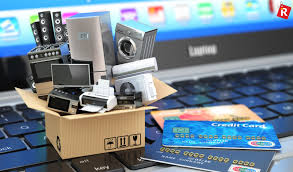Licensing for Startups : How Small Businesses Can Leverage Big Brands for Instant Trust

For startups, gaining customer trust is one of the hardest battles in the early stages. No matter how innovative your product is, consumers tend to trust the brands they already know. But what if you could borrow that trust — instantly?
That’s the promise of brand licensing.
Through the right licensing deal, a startup can co-brand its products or services with a well-known name like Hello Kitty, Pokémon, or even FIFA, catapulting their market visibility, credibility, and customer confidence overnight.
What Is Brand Licensing (and Why It Matters to Startups)?
Brand licensing is the process where one company (the licensor) allows another (the licensee) to use its brand name, logo, characters, or intellectual property (IP) on products or services — typically in exchange for a royalty or licensing fee.
For startups, licensing can:
- Accelerate brand recognition
- Reduce marketing costs
- Boost perceived quality and trust
- Open doors to retail and distribution channels
Real-World Example: Hello Kitty + Startups
Hello Kitty is one of the most licensed characters in the world. While Sanrio (the licensor) doesn’t manufacture most Hello Kitty products itself, it allows small and mid-size companies to create products like apparel, toys, cosmetics, and stationery with Hello Kitty branding.
One small beauty startup saw sales triple in just 3 months after launching Hello Kitty-themed face masks. Why? Because consumers recognized the brand — and trusted it.
Why Licensing Works for Small Businesses
Here’s how licensing transforms startup growth:
- Instant Brand Trust
Instead of building brand equity from scratch, you borrow trust from a household name. A Pokémon-themed lunchbox sells faster than a generic one — no matter how functional the latter is.
- Marketing & PR Leverage
Media outlets, influencers, and retailers are more likely to cover a startup using a licensed brand. Think about how many “limited-edition collab” stories you’ve seen in the news — licensing makes that buzz possible.
- Retail Access
Big-box stores and e-commerce platforms are more open to carrying licensed products. A FIFA License, for example, may help a startup apparel brand land deals with sports retailers ahead of a major tournament.
- Built-In Fan Base
Licensing taps into an existing audience. You’re not just selling a product — you’re offering a piece of a brand fans already love.
- Category Differentiation
Startups often compete in crowded markets. Licensing helps you stand out with a unique proposition. “It’s not just a candle — it’s a Star Wars™ collectible candle.”
How Startups Can Start Licensing
Here’s how you can enter the licensing game, even with limited resources:
- Find the Right IP Fit
Pick a brand that aligns with your product and audience. If you’re in sustainable toys, maybe Peppa Pig or National Geographic Kids is a better fit than Marvel.
- Work With a Brand Licensing Agency
Navigating licensing contracts, royalties, brand guidelines, and legal approvals can be overwhelming. A brand licensing agency helps:
- Connect you to licensors
- Negotiate fair deals
- Ensure compliance and brand alignment
- Guide creative approvals and marketing timelines
- Start with a Niche or Regional License
You don’t need to go global on day one. Many licensors offer limited-time, category-specific, or regional licenses, allowing you to test the waters with lower financial exposure.
- Build a Licensing Pitch
Treat the licensor like an investor. Show them:
- Your product idea
- How you’ll market it
- Your audience reach
- Why your business is a good brand partner
Caution: Licensing Isn’t Free Branding
While licensing offers instant credibility, it’s not a shortcut. You still need to:
- Deliver quality
- Invest in manufacturing and logistics
- Adhere to brand guidelines
- Handle royalty payments and approvals
Poor execution can damage both your startup and the licensed brand — so treat it with care.
Final Thoughts
Licensing is a game-changing growth strategy for startups — especially those in consumer goods, fashion, food, toys, and tech accessories. If done right, a licensing deal can do in 6 months what might otherwise take 6 years of brand building.
So if you’re a startup founder looking for that competitive edge, consider this:
Why build brand trust from scratch when you can license it?






